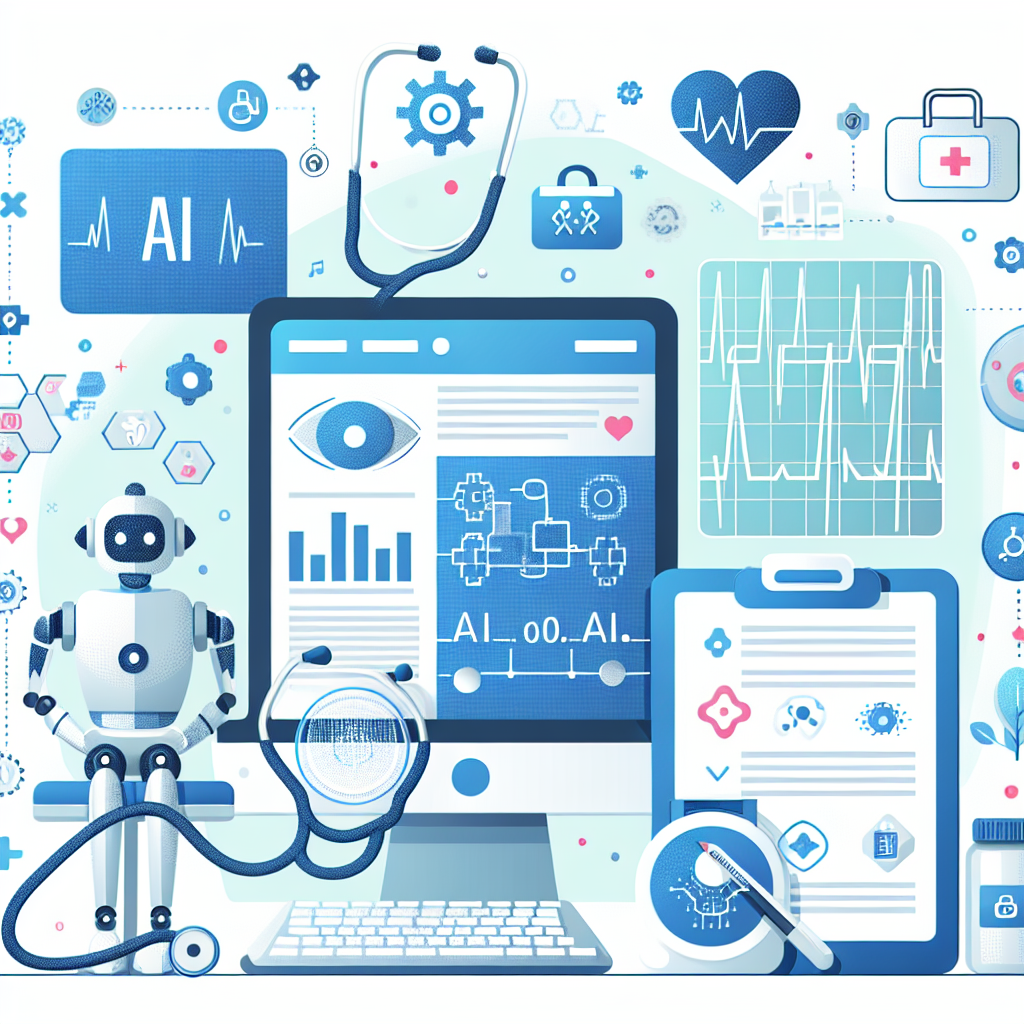AI Integration in Healthcare Quality Measurement
Artificial intelligence (AI) has quickly become a game-changer in the healthcare industry, revolutionizing the way quality measurement is conducted. By leveraging AI technology, healthcare providers can now collect, analyze, and interpret vast amounts of data to improve patient outcomes and enhance the quality of care. In this article, we will explore the various ways AI is being integrated into healthcare quality measurement and the benefits it brings to both patients and healthcare professionals.
The Role of AI in Healthcare Quality Measurement
Healthcare quality measurement is essential for evaluating the effectiveness of healthcare services and ensuring that patients receive the best possible care. Traditionally, quality measurement has relied on manual data collection and analysis, which can be time-consuming, error-prone, and limited in scope. AI technology, on the other hand, offers a more efficient and accurate way to measure healthcare quality by automating the process and analyzing data at a faster pace.
One of the key roles of AI in healthcare quality measurement is predictive analytics. By analyzing historical data and identifying patterns and trends, AI algorithms can predict potential health outcomes and suggest the best course of action for healthcare providers. This can help healthcare professionals make more informed decisions and tailor treatment plans to individual patient needs, ultimately improving the quality of care.
Another way AI is being used in healthcare quality measurement is through natural language processing (NLP) technology. NLP allows AI systems to understand and interpret human language, enabling healthcare providers to extract valuable insights from unstructured data sources such as patient notes, medical records, and research papers. By analyzing this data, AI algorithms can identify trends, patterns, and correlations that may not be immediately apparent to human analysts, helping healthcare providers make more accurate diagnoses and treatment decisions.
AI is also playing a crucial role in improving healthcare quality through image recognition technology. By analyzing medical images such as X-rays, CT scans, and MRIs, AI algorithms can detect abnormalities, identify potential health risks, and assist healthcare providers in making more accurate and timely diagnoses. This can help reduce the risk of misdiagnosis and ensure that patients receive the appropriate treatment in a timely manner.
Benefits of AI Integration in Healthcare Quality Measurement
The integration of AI in healthcare quality measurement offers several advantages for both patients and healthcare professionals. Some of the key benefits include:
1. Improved Accuracy: AI algorithms can analyze vast amounts of data with a high level of accuracy, helping healthcare providers make more informed decisions and improve the quality of care.
2. Enhanced Efficiency: AI technology can automate repetitive tasks such as data collection and analysis, allowing healthcare providers to focus on more complex and critical aspects of patient care.
3. Personalized Care: By analyzing individual patient data, AI algorithms can tailor treatment plans to meet the specific needs and preferences of each patient, resulting in better outcomes and higher patient satisfaction.
4. Early Detection: AI-powered predictive analytics can identify potential health risks and predict adverse outcomes before they occur, allowing healthcare providers to intervene early and prevent complications.
5. Cost Savings: By improving the efficiency and accuracy of healthcare quality measurement, AI technology can help reduce healthcare costs and minimize waste, ultimately leading to a more sustainable healthcare system.
FAQs
Q: Is AI technology safe and reliable for use in healthcare quality measurement?
A: Yes, AI technology has been extensively tested and validated for use in healthcare quality measurement. It is designed to be safe, reliable, and accurate, and can help healthcare providers improve the quality of care and enhance patient outcomes.
Q: How does AI technology protect patient privacy and data security?
A: AI technology complies with strict privacy and security regulations to ensure that patient data is protected and kept confidential. AI algorithms are designed to encrypt and anonymize data to prevent unauthorized access and maintain patient privacy.
Q: Can AI technology replace human healthcare providers in quality measurement?
A: AI technology is designed to augment and support human healthcare providers, not replace them. While AI can automate certain tasks and analyze data more efficiently, it cannot replace the expertise, empathy, and judgment of healthcare professionals.
Q: How can healthcare providers integrate AI technology into their quality measurement processes?
A: Healthcare providers can integrate AI technology into their quality measurement processes by investing in AI-powered tools and software, training staff on how to use AI technology effectively, and collaborating with AI experts and data scientists to develop customized solutions.
Q: What are some examples of AI applications in healthcare quality measurement?
A: Some examples of AI applications in healthcare quality measurement include predictive analytics for identifying health risks, natural language processing for analyzing unstructured data sources, and image recognition for detecting abnormalities in medical images.
In conclusion, AI integration in healthcare quality measurement is transforming the way healthcare providers collect, analyze, and interpret data to improve patient outcomes and enhance the quality of care. By leveraging AI technology, healthcare professionals can make more informed decisions, tailor treatment plans to individual patient needs, and ultimately deliver better healthcare services. As AI technology continues to evolve and advance, its role in healthcare quality measurement is only expected to grow, offering new opportunities for innovation and improvement in the healthcare industry.

